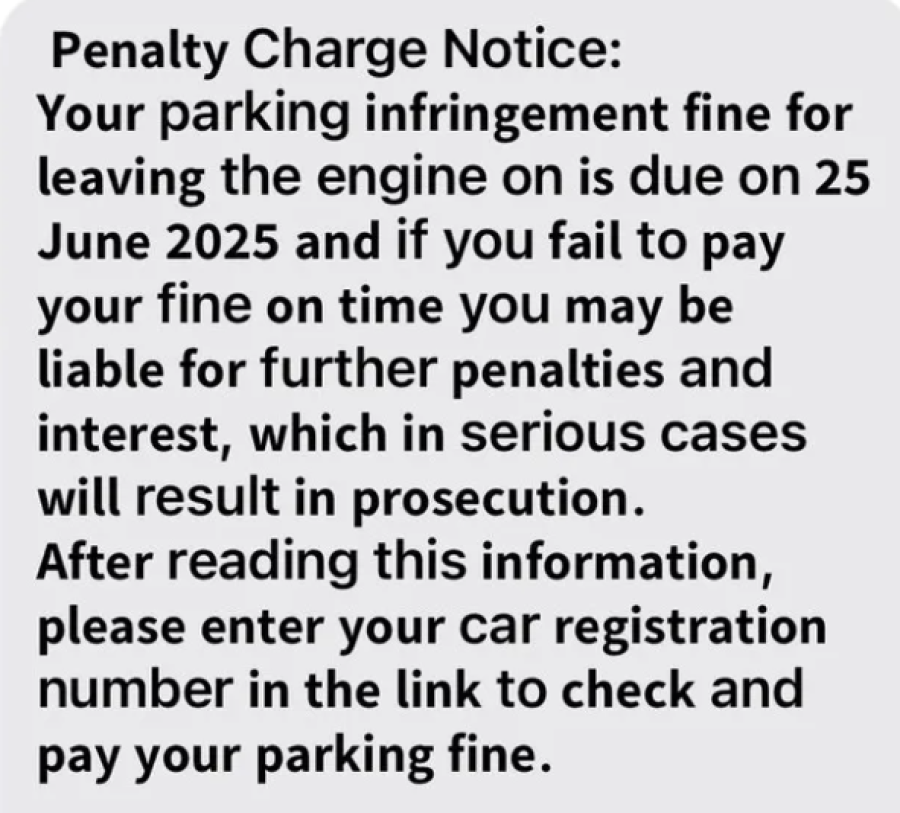Watch Out for These Scams: Vrbo, Grubhub+, Fake Fines

Author: Adam Collins
Scams aren’t just sloppy emails anymore. This week, we’ve seen fraudsters impersonate major brands, exploit global crises, and fake relationships — all to get one thing: your trust.
From fake rental listings to hijacked food delivery accounts and emotional pleas on Instagram, it’s clear scammers are no longer relying on scare tactics alone. They’re using emotion, storytelling, and subtlety to fool even the cautious.
Here’s what to watch out for:
Fake Grubhub+ Subscription Using Your Email
You get an email about updating your Grubhub+ payment method — except you never signed up. When you check the site using your email, there’s a profile with your address and someone else’s name. No order history, but a subscription is active.

This is likely a data-harvesting scam or a setup for future fraud. If you'd clicked the email link, it could have been worse.
Pro Tips:
- If you get an email from a service you don’t use, go directly to the official site.
- Always double-check any accounts tied to your email.
- Use strong, unique passwords across all services.
Fake Vrbo Site, Real Vacation Nightmare

A too-good-to-be-true villa in Montenegro appears on a trusted platform. When the booking is “rejected,” the owner emails directly, sharing a new link — supposedly to Vrbo.
The link leads to an impersonated scam website. After a wire transfer, the truth comes out: no villa, no refund.
Pro Tips:
- Only book and pay through official travel platforms.
- Don’t click booking links from emails — use the app or type in the URL manually.
- If a host requests a wire transfer, walk away.
Instagram Scam Using Crisis Stories
Someone claiming to be a teenager in a conflict zone, like Palestine, reaches out asking for financial help. They share emotional videos, stories, and even an ID photo.

But when you ask questions, the answers are vague. The content they share already exists on their profile. It becomes clear: the identity may be fake, and the story is likely stolen.
Pro Tips:
- Be cautious of emotional appeals from strangers online.
- Don’t send money to anyone without verifying who they are.
- If you want to help, donate through established charities.
You’re Fined for Leaving Your Engine On? Not Quite

A text says you’ve been fined for leaving your engine running — and gives you a link to pay immediately. Sounds urgent, but it’s a setup.
The link leads to a fake payment site that harvests your financial data.
Pro Tips:
- Government fines won’t arrive via vague text messages.
- Never click shortened or suspicious links.
- Contact your local authority directly if in doubt.
Facebook Flirting with a Side of Fraud

You accept a friend request. Then come the messages — they’re from a widower stationed overseas, with a tragic backstory and a child in another country. Things move quickly, and soon there’s talk of needing help.
These scams are designed to build trust fast, then ask for money under emotional pressure.
Pro Tips:
- Be wary of strangers with overly dramatic life stories.
- Romance + urgency is a red flag.
- Don’t send money or gifts to people you’ve never met.
Bottom Line: Scammers Are Evolving — So Should You
These scams are no longer easy to spot. They don’t rely on typos or sketchy formatting — they rely on you caring enough to trust them.
So before you click, send, or reply:
- Slow down.
- Check the link.
- And if something feels off, trust your instinct.
Report what you see. Talk about it. Help others stay alert. The more we recognize these tactics, the harder it becomes for scammers to succeed.
Before you click, check with ScamAdviser.com—it’s a quick way to verify websites, phone numbers, crypto wallets, and even IBANs. On mobile? No worries—the ScamAdviser app has you covered 24/7, keeping you safer wherever you browse.
Report a Scam!

Have you fallen for a hoax, bought a fake product? Report the site and warn others!
Scam Categories
Help & Info
Popular Stories
As the influence of the internet rises, so does the prevalence of online scams. There are fraudsters making all kinds of claims to trap victims online - from fake investment opportunities to online stores - and the internet allows them to operate from any part of the world with anonymity. The ability to spot online scams is an important skill to have as the virtual world is increasingly becoming a part of every facet of our lives. The below tips will help you identify the signs which can indicate that a website could be a scam. Common Sense: Too Good To Be True When looking for goods online, a great deal can be very enticing. A Gucci bag or a new iPhone for half the price? Who wouldn’t want to grab such a deal? Scammers know this too and try to take advantage of the fact. If an online deal looks too good to be true, think twice and double-check things. The easiest way to do this is to simply check out the same product at competing websites (that you trust). If the difference in prices is huge, it might be better to double-check the rest of the website. Check Out the Social Media Links Social media is a core part of ecommerce businesses these days and consumers often expect online shops to have a social media presence. Scammers know this and often insert logos of social media sites on their websites. Scratching beneath the surface often reveals this fu
So the worst has come to pass - you realise you parted with your money too fast, and the site you used was a scam - what now? Well first of all, don’t despair!! If you think you have been scammed, the first port of call when having an issue is to simply ask for a refund. This is the first and easiest step to determine whether you are dealing with a genuine company or scammers. Sadly, getting your money back from a scammer is not as simple as just asking. If you are indeed dealing with scammers, the procedure (and chance) of getting your money back varies depending on the payment method you used. PayPal Debit card/Credit card Bank transfer Wire transfer Google Pay Bitcoin PayPal If you used PayPal, you have a strong chance of getting your money back if you were scammed. On their website, you can file a dispute within 180 calendar days of your purchase. Conditions to file a dispute: The simplest situation is that you ordered from an online store and it has not arrived. In this case this is what PayPal states: "If your order never shows up and the seller can't provide proof of shipment or delivery, you'll get a full refund. It's that simple." The scammer has sent you a completely different item. For example, you ordered a PlayStation 4, but instead received only a Playstation controller. The condition of the item was misrepresented on the product page. This could be the